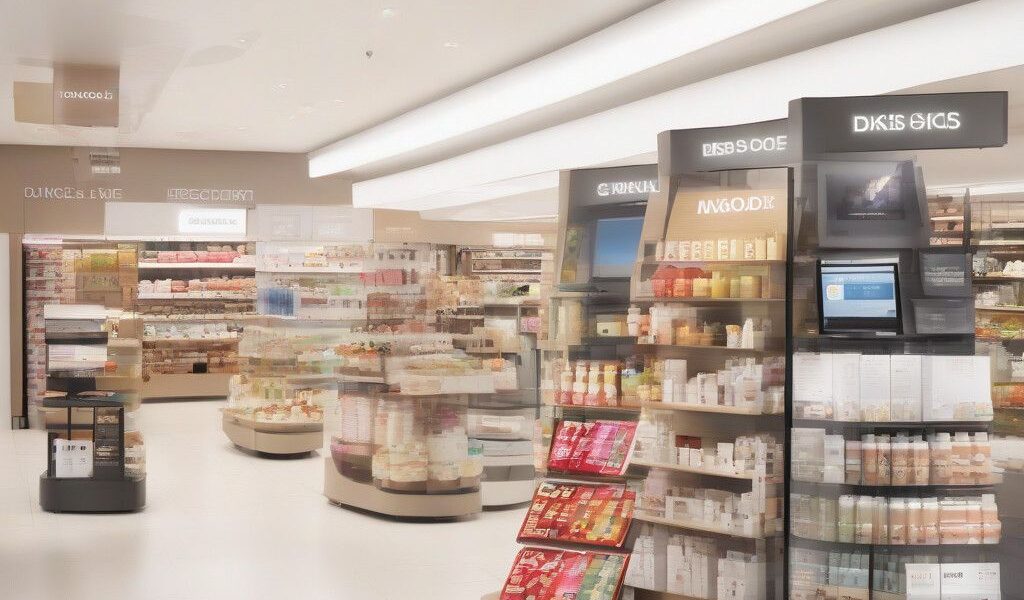Marks & Spencer (M&S), a cornerstone of the U.K. retail landscape, has renewed and broadened its existing services contract with Diebold Nixdorf. This strategic move expands support across M&S’s wide retail footprint, encompassing over 1,000 stores in both the U.K. and Ireland. The contract aims not only to enhance operational efficiency but also to elevate customer experience through advanced technology integration.
The revised agreement introduces comprehensive support services for M&S’s entire store estate. This includes managed services for self-checkout technology and self-order terminals located in M&S’s digital cafés. Such innovations respond to evolving consumer preferences, promoting ease and efficiency in the shopping experience. M&S’s commitment to improving customer service through technology is evident, especially with the growing trend toward contactless and self-service options that enhance convenience.
Since partnering with Diebold Nixdorf in 2019, M&S has witnessed significant advancements in hardware support services. The expansion of this contract signals a deepening collaboration, focusing on increased productivity for both M&S employees and Diebold Nixdorf’s field service engineers. By optimizing these operational channels, M&S can expect reduced help desk inquiries and improved system uptime. This efficiency is crucial in today’s competitive retail environment, where operational downtime can result in substantial loss of revenue.
Ben Gale, senior vice president and managing director for Diebold Nixdorf’s EMEA and APAC Retail Sales Management, expressed enthusiasm about the renewal and expansion. He stated that the adjusted business model not only aligns with M&S’s strategic goals but also offers the agility to adapt to market conditions. This flexibility is particularly important given the rapid shifts in consumer behavior and technology usage observed recently.
Moreover, the agreement emphasizes the necessity of integrating emerging technologies in retail. With customers increasingly favoring self-service solutions, M&S’s investment in self-checkout technology exemplifies how retailers must innovate to stay relevant. A Gartner survey has shown that over 60% of consumers prefer self-service options when shopping, underscoring the appropriateness of M&S’s latest contract extension.
Retail technology providers like Diebold Nixdorf are at the forefront of this industry shift. Their focus on managed services allows retailers like M&S to benefit from enhanced service quality and reduced operational burdens. The capability to implement seamless software updates and provide real-time support contributes substantially to the overall shopping experience. By having access to well-functioning hardware and software solutions, M&S can offer its customers a more streamlined shopping process—crucial in retaining and attracting clientele in such a saturated market.
The move also serves as a reminder of the ongoing trend toward omnichannel retailing. Retailers are increasingly required to interconnect various sales platforms, ensuring that customers receive a consistent experience whether shopping in-store or online. M&S’s expanded contract with Diebold Nixdorf aligns perfectly with this omnichannel approach, providing the infrastructure necessary to support various shopping methods.
For M&S, further investment in technology is a response to heightened consumer scrutiny and expectations. The modern shopper demands not only product value but also an enhanced purchasing journey. In this context, partnerships like that of M&S and Diebold Nixdorf create synergies that yield notable benefits for operational efficiency and customer satisfaction alike.
In conclusion, Marks & Spencer’s expansion of their services contract with Diebold Nixdorf illustrates a proactive strategy to navigate the current retail landscape. This partnership is pivotal in harnessing technology to optimize the customer experience while simultaneously enhancing internal operations. As retailers face new challenges in a digital-first world, finding allies to foster operational resilience will be essential for enduring success.











